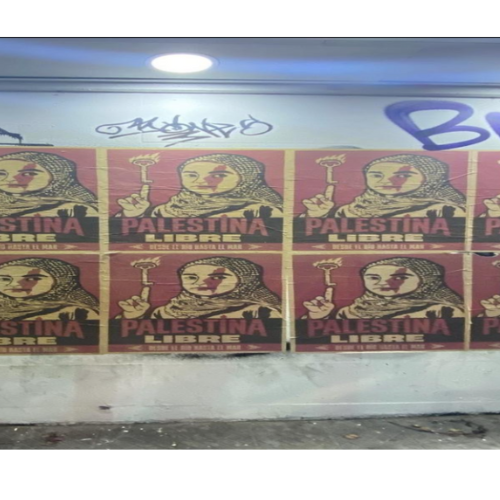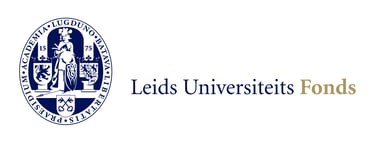Chile’s Palestinian diaspora
We are on October 5th, 2024 when a huge march for Palestine took place in Santiago de Chile. Protesters gathered to call out the Chilean president, Gabriel Boric for his continued ties with Israel. Their aim: to get Boric to cut all ties with Israel. The protest, organized by the association Accion x Palestina, started at 11 a.m. in front of the cultural center Gabriella and gathered around 3000 people. The march was accompanied by pacifist songs, indigenous traditional musics, and slogans to support the Arab state. Other South American countries such as Bolivia, Brazil, and Venezuela also have shown their support to Palestine, by hosting big protests in their capitals. In fact, the biggest diaspora of Palestinian people can be found in South-America., Especially in Chile, where about 450,000 to 500,000 people of Palestinian descent reside
Lisa Berger
11/25/2024
You may wonder, how come there is a connection between South America and the Middle East? In fact, this connection goes back to the 19th century. Between 1860 and 1914, around 1,2 million Ottoman citizens from Lebanon, Syria, Jordan and Palestine migrated to the Americas. They mainly settled in Honduras, the United-States and Chile.
Palestinian migration to Chile occurred during the 19th and 20th centuries. With most originating from Bethlehem, Beit Jala Beit Sahar. But why did so many people migrate? There were several factors contributing which might explain these sudden waves of migration, such as the forced conscription to the military for the Christian population. In early 1900, the consequences of the First World War on the economy and the end of the Ottoman Empire in 1924 also contributed to people feeling the desire to leave. Palestinian migration kept occurring even after the Nakba in 1947-1948, meaning “disaster” in Arabic and referring to the exodus of Palestinians during the Arab-Israeli war, as well as the Intifadas of the late 1980s and early 2000s which were Palestinian uprisings led by young people against the Israeli occupation forces.
Palestinian migrants mainly settled in Santiago and its surrounding areas. At first, Palestinian migrants experienced discrimination due to their roots. However, the 20th century marked the entrance of the Palestinians into the Chilean economy as traders and entrepreneurs. This allowed Palestinian migrants to become one of the wealthiest populations in Chile. This level of economic success made possible the creation of a new Chilean-Palestinian identity. By then, 65% of Palestinian migrants were identifying as such.
The creation of a Chilean-Palestinian identity led to the establishment of many Palestinian cultural institutions within Chile, such as the Club Palestino in 1939. This was a social hub hosting cultural gatherings and events, in order to maintain the memory of Palestinian culture in Chile. Regarding education, several Arab Colleges were opened in cities such as Santiago, Viña Del Mar, and Concepcion. These institutions offer bilingual curriculums in the Arabic language as well as courses in Palestinian studies.
In terms of politics, Chile was highly influenced by the Palestinian identity groups. This could serve as a reason for the heightened attention in Chile regarding the Palestinian cause. The Chilean-Palestinian interparliamentary group represents the largest within the Chilean Congress, including figures such as Fuad Chahín, Francisco Chahuan, and Daniel Jadue. This strong political representation played an important role in shaping Chile’s foreign policy towards Palestine. For instance, in 1947, the Chilean delegation chose to abstain from the 1947 United Nations vote on the partition of Palestine, and in 2011, Chile officially recognized the state of Palestine. In September 2024, Chilean President Gabriel Boric stated that he “refused to choose between Hamas terrorism and the massacre and genocidal conduct of the government of Benjamin Netanyahu.”. With this statement, the Chilean president claimed that he was “choosing humanity” and called for a ceasefire and the liberation of all the hostages.
The Chilean-Palestinian community has shown strong support to Gaza citizens since the beginning of Israel's attack. Many Chilean-Palestinian organizations such as Federacion Palestina, or Comunidad Palestina de Chile, regularly organize protests and fundraisers for Palestine, to raise money for humanitarian aid in Gaza. Despite the distance, the strong presence of the Palestinian community in Chile demonstrates their unity in the face of challenge.
Lisa Berger
References:
The Origin and Evolution of Palestinian Community in Chile - Julieta Espín Ocampo
Interactive Encyclopedia of the Palestine Question
Chile, Boric: “Me niego a elegir entre el terrorsimi de Hamas y el genocido de Israel”, El País.
Masiva marcha pro Palestina en Santiago pide al Gobierno de Boric romper relaciones con IsraelFuente: Emol.com - https://www.emol.com/noticias/Nacional/2024/10/05/1144661/marcha-pro-palestina-santiago-israel.html




